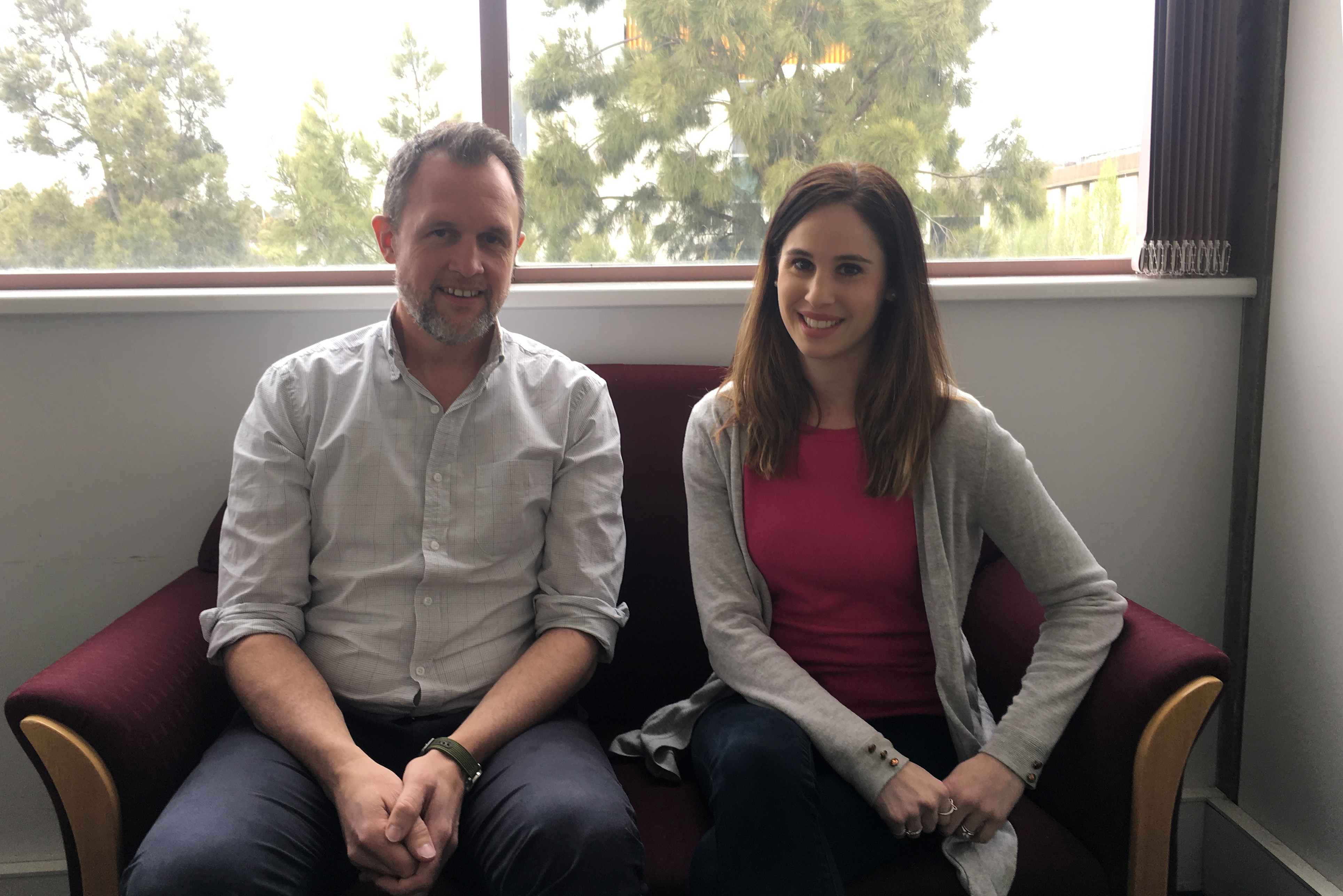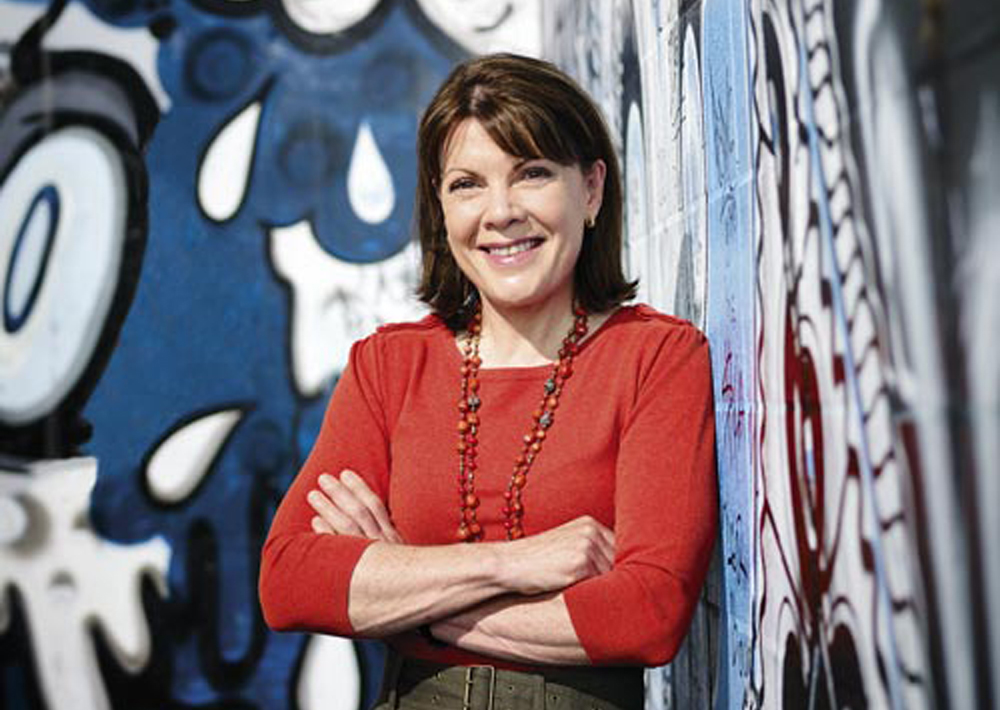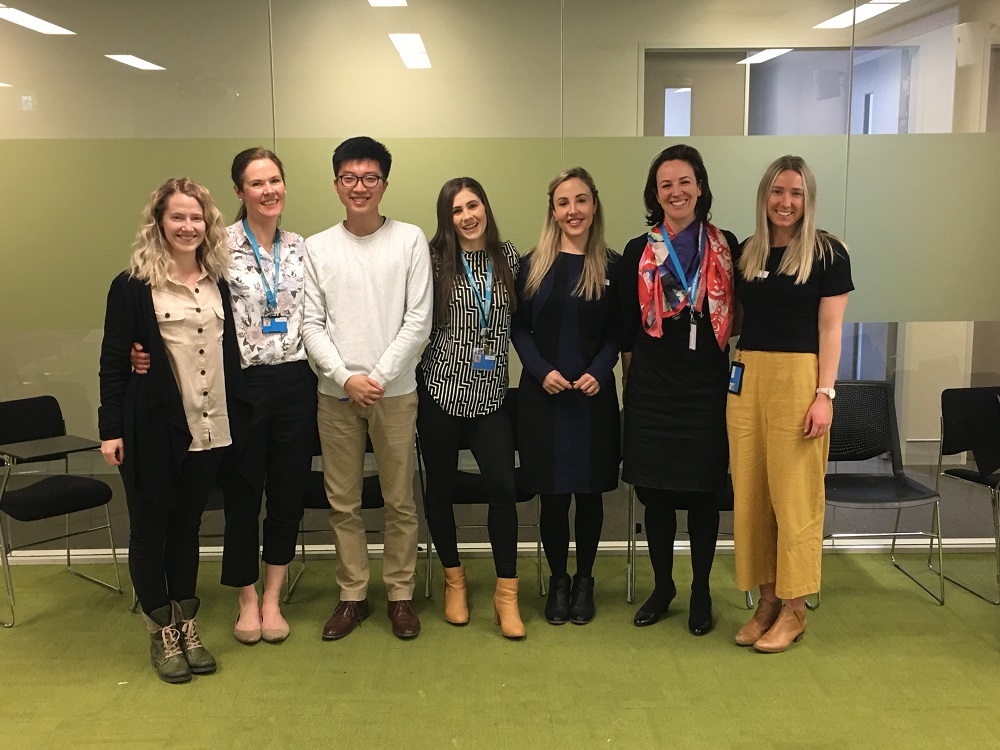Suzanne Lazaroo
24 October 2019: Early intervention can influence and change the mental health trajectory of a person’s entire life, says the dedicated University of Canberra team pioneering a new program to support young people with mental health issues.
The free-to-join 14-week WOKE DBT program – which refers to ‘wise knowing, skillful behavior and effectiveness’ – is especially geared towards those in the 15 to 21 age range.
Dialectical Behaviour Therapy (DBT), adapted to an early intervention framework, is a cornerstone of the program. DBT is used in therapy for people with emotional instability, and those with multiple social and emotional issues including self-harming behavior.
Professor in Psychology Dr Debra Rickwood is the overall project lead, with Senior Lecturer in Psychology Dr Dean Buckmaster taking on the role of clinical lead.
Assistant Professor in Clinical Psychology Dr Clare Watsford is supervising the students in the research component of the program evaluation and providing clinical input, while DBT Leaders Alexi O’Dea and Emily McIntyre are the Clinical Supervisors.

Dr Dean Buckmaster is serving as clinical lead for the WOKE program, while Dr Clare Watsford is student supervisor for its research component. Photo: supplied
“This program is especially for young people using unsustainable ways to regulate their emotions, such as self-harm, turning to drugs or alcohol, or impulsive spending,” said Dr Buckmaster.
“It’s for those dealing with a lot of emotional instability, whose heightened emotional vulnerability has them feeling distressed and overwhelmed, and who have a broad range of emotional and social difficulties.”
It also provides an early intervention framework for young people just displaying early warning signs of Borderline Personality Disorder (BPD).
“It can potentially help young people avoid the burden of disease, if BPD is treated early enough,” said Dr Watsford.
Currently, the program seems to be appealing to participants between the 17 and 21 age range. Dr Buckmaster says that young people in this range often fall into a transition gap in mental health services.
“This corresponds with the gap in the availability of services that can happen for youth as they transition from adolescent to adult services,” he said.

Dr Debra Rickwood is the overall project lead for the early intervention program. Photo: supplied
As the WOKE program is skills-based, participants need to have the capacity to learn.
Participants learn new skills every week, which range from crisis survival skills to regulating emotions to dealing with relationships and improving communication.
“The young participants will attend each session with a family member, foster carer or support worker, so the latter will also be learning these skills,” said Dr Watsford.
“Involving a parent increases the effectiveness of the program, because their validation and support – and the home environment itself – is critical to a young person trying to regulate their emotions.”
Dr Buckmaster said that programs which involved parents and children had resulted in good outcomes, as relationships benefitted from improved understanding and communication.
These include reduced tendencies towards self-harm and suicide, significant reductions in depression and anxiety, and reports of improved interpersonal and work relationships even beyond the parent-child dynamic.
There will also be a clinical psychologist available for participants who need one-on-one therapy over the 14-week period, as well as sessions for parents as needed.
“We will also do phone coaching sessions, so that participants can practice the skills they’ve learned,” Dr Buckmaster said.
The WOKE program will provide external placement opportunities for second-year Masters of Clinical Psychology students.
It’s an invaluable opportunity, says Dr Buckmaster, because working with young, high-risk client populations requires a lot of specialised training.

Some of the WOKE team (from left): Camilla Mead, Lucy Erickson, Tommy Choi, Emily Jacobs, Imogen Rizzo, Alexi O’Dea (Clinical Supervisor) and Anna Brichacek. Photo: supplied
The student team currently participating in the program includes Camilla Mead, Lucy Erickson, Tommy Choi, Emily Jacobs, Imogen Rizzo, and Anna Brichacek.
“The students are highly motivated, skilful and determined to help the young people participating in the program. They are a joy to work with,” said Dr Buckmaster.
While the team is looking forward to good early intervention and clinical training outcomes, they also want to contribute to and develop the early intervention evidence base for the client population.
“We hope to do this by producing excellent clinical outcomes and the introduction of innovative new skills and approaches,” said Dr Buckmaster.
Ultimately, the WOKE team has been driven by the desire to really make a difference at the community level.
Currently, they have funding for three rounds of the program, which has the potential to impact 90 young people (double that, when you count parents and carers).
“WOKE is such a hopeful and inspiring initiative, giving young people the chance to potentially change their mental health trajectory for the better, and therefore impact the rest of their lives,” said Dr Watsford.
The WOKE program is run in cooperation with the Capital Health Network.
For enquiries about the program, call 6201 5843 or email healthclinic@canberra.edu.au


